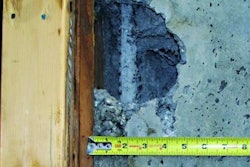Senate Bill 890, which would require contractors working on public projects to pay subcontractors in a timely fashion to avoid penalties, was killed on the floor of the Oregon Senate on Tuesday.
The bill failed in a 16-13 vote, but it could be reconsidered later.
The bill's death surprised John Killin, president of the Associated Builders and Contractors Pacific Northwest Chapter, who said that a large coalition of groups in the industry strongly supported it.
Other trade groups in support of the bill include local chapters of the National Association of Minority Contractors and the Oregon State Association of Plumbing, Heating and Cooling Contractors. But the Associated General Contractors, which represents a large percent of the commercial construction work in Oregon, is opposed to it.
"Our view is that it created more problems than it solved," said Mike Salsgiver, executive director of the Associated General Contractors Oregon-Columbia Chapter. "Ultimately it would have interrupted business to business relationships that weren't in the best interests of the industry. "
The way the bill was written, Salsgiver said, would have shifted the financial burden back to the general contractor, which is not solving payment problems, but rather creating new ones.
The bill is not just about subcontractors receiving payment for completed work, but about retainage, Killin said, which is the percentage of payment that an owner or general contractor holds until work is completed correctly. When the project is finished, the subcontractors receive payment.
"Part of the reason we're pushing for this bill is because we did some survey work and studies on the length of time retention was being held, and in some cases, it was multiple years," Killin said.
Some contractors are struggling because they haven't collected retainage withheld for multiple years on a majority of contracts, and that retainage is often more than the profit margin, Killin said.
The bill would require a general contractor to pay a subcontractor within 30 days of the subcontractor's request for payment. If a general contractor wanted to change the contract or the process of submitting paperwork, it would be required to give the subcontractor 45 days notice. First-time violators would receive a warning, but subsequent violations would result in removal from a preferred contractor list and eventual disbarment from work on public projects.
The private sector has a pretty good record or resolving issues of releasing payment, Salsgiver said. But the public sector is another matter. The bill enforces payment, Salsgiver said, but would require general contractors, the middle men between owners and subcontractors, to be responsible for paying subcontractors before they themselves are paid.
"The principle of 'pay when paid' is really important," Salsgiver said. "It's fundamental to the construction industry, and we didn't think this bill was the way to get there. "
The bill went down on a 13-16 vote, but Sen. Chip Shields, Portland democrat and sponsor of the bill, served notice that he reserved the right to call for the bill to be reconsidered at a later date.
Salsgiver said he views the AGC, with members on all sides of the issue, as a forum for these kinds of issues to be discussed in the future.
Killin also expects that the bill will resurface and there will be further talk about potential solutions within the industry.
"It is not just a short-term problem, it's something people in the industry have talked about for years," Killin said. "The rest of the industry is going to have to work together to come up with a common, satisfactory outcome. "

















